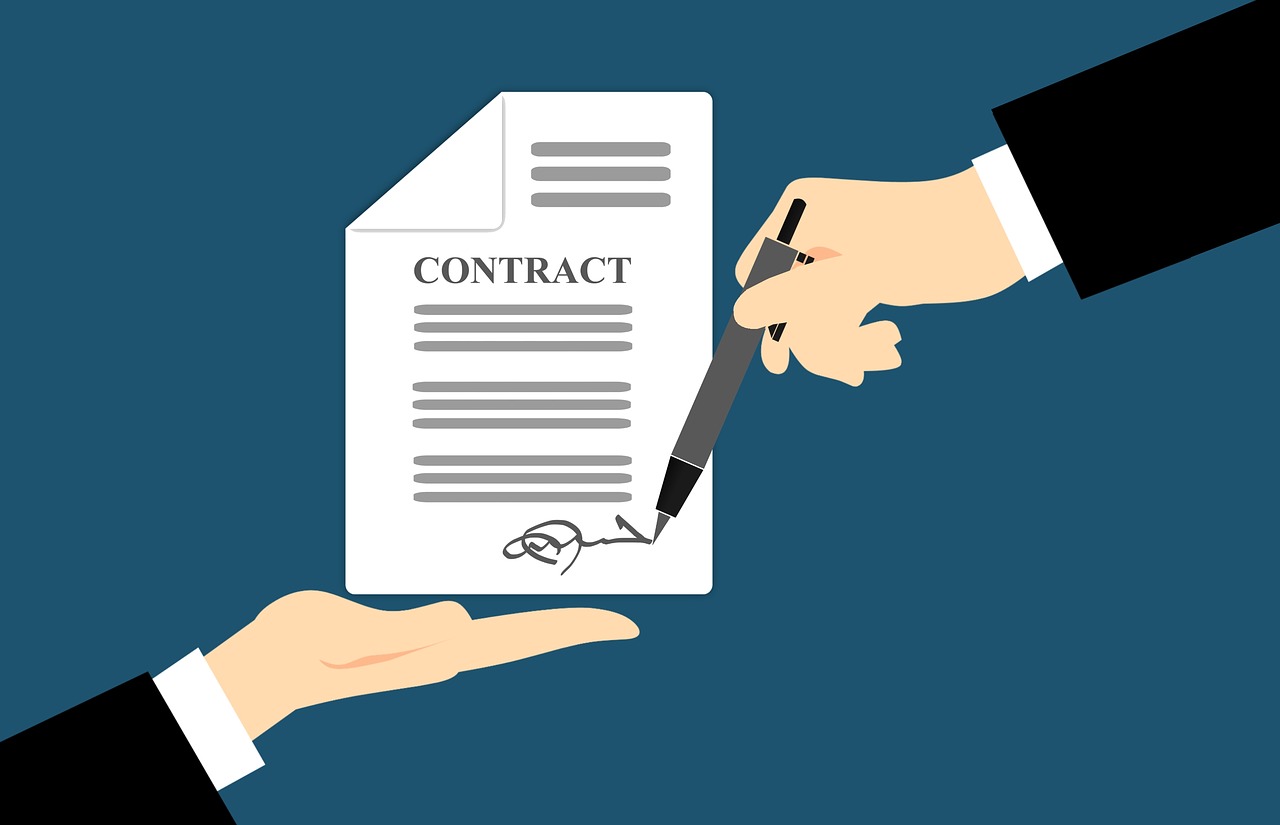Are you considering adoption in Cottonwood Heights, Utah? Look no further, because our adoption lawyer is here to provide you with the guidance and support you need. Our comprehensive and exhaustive article will address common legal concerns directly, offering reassurance and guidance throughout the process. From understanding the legal requirements to navigating the paperwork, our adoption lawyer will ensure that you have all the information you need to make informed decisions. With a clear call-to-action at the end of the article, we aim to prompt potential clients like you to take the next step and seek assistance promptly. So, if you’re looking for an adoption lawyer in Cottonwood Heights, Utah, give us a call to schedule a consultation and let us assist you in your journey towards expanding your family.
What is Adoption?
Adoption is a legal process by which individuals or couples become the legal parents of a child who is not their biological child. It is a beautiful way to form a family and provide a loving home for a child who may not have had one otherwise. Adoption allows individuals or couples to fulfill their dreams of becoming parents and provides children with a stable and nurturing environment to grow and thrive.
Definition of Adoption
Adoption is a legal process by which the parental rights and responsibilities of a child’s birth parents are transferred to adoptive parents. This process creates a legally recognized parent-child relationship between the adoptive parents and the child. In adoption, the adoptive parents assume all the rights, duties, and privileges of biological parents, and the child gains all the rights and benefits of being a legally recognized member of the adoptive family.
Types of Adoption
There are various types of adoption, each with its own unique set of circumstances and legal requirements. Some common types of adoption include:
-
Domestic Adoption: This is when a child is adopted within the same country as the adoptive parents. It can involve adopting an infant, older child, or even a stepchild.
-
International Adoption: This occurs when a child is adopted from another country. It involves complying with both the adoption laws of the adoptive parents’ country and the laws of the child’s country of origin.
-
Foster Care Adoption: This is the adoption of a child who is already in the foster care system. These children are typically older or may have additional needs.
-
Open Adoption: In open adoption, there is some level of communication and contact between the birth parents, adoptive parents, and the child. This can range from occasional updates to regular visitations.
-
Closed Adoption: Closed adoption, on the other hand, involves no contact or exchange of identifying information between birth parents and adoptive parents.
-
Stepparent Adoption: This occurs when a step-parent legally adopts their spouse’s child from a previous relationship.
It is important to consult with an adoption lawyer to understand the specific process and requirements for the type of adoption you are considering.
Why Should You Hire an Adoption Lawyer?
Adoption is a complex legal process that involves multiple parties, intricate paperwork, and adherence to specific laws and regulations. Hiring an adoption lawyer is crucial to ensure that the process runs smoothly, your rights are protected, and all legal requirements are met.
Navigating Complex Adoption Laws
Adoption laws can vary from state to state and even from country to country in the case of international adoption. Navigating these laws can be overwhelming and confusing for someone without legal expertise. An experienced adoption lawyer will guide you through the legal complexities, ensuring that you understand your rights, responsibilities, and the steps involved in the adoption process.
Protecting Your Rights
When you embark on the adoption journey, it is vital to have an advocate who will protect your rights as the prospective adoptive parents. An adoption lawyer will ensure that all necessary consent forms and legal documents are obtained, that your home study is conducted properly, and that any potential legal issues or challenges are anticipated and dealt with effectively.
Streamlining the Adoption Process
Adoption can be a lengthy and time-consuming process, with many steps and requirements that must be fulfilled. An adoption lawyer will help streamline the process, ensuring that all necessary paperwork is completed accurately and submitted on time. This can help expedite the adoption process and bring your family together sooner.
Reviewing and Preparing Legal Documents
Adoption involves an extensive amount of legal documentation, including adoption petitions, consent forms, and adoption agreements. These documents must accurately reflect your intentions and comply with the applicable laws. An adoption lawyer will review and prepare these documents on your behalf, ensuring that they are comprehensive, legally valid, and in your best interest.
Handling Adoption Disputes
While rare, adoption disputes can arise, causing stress and uncertainty for everyone involved. An adoption lawyer will help mediate any disputes that may arise between birth parents, adoptive parents, or other parties. They will work towards a resolution that protects the best interests of the child and ensures a smooth transition into their new family.
How to Choose an Adoption Lawyer
Choosing the right adoption lawyer is essential to ensure a successful adoption process. Here are some factors to consider when selecting an adoption lawyer:
Experience and Expertise
Look for an adoption lawyer with extensive experience and expertise in handling adoption cases. They should have a deep understanding of adoption laws, procedures, and best practices. A seasoned adoption lawyer will be well-versed in the specific requirements and challenges that may arise throughout the adoption process.
Reputation and Track Record
Research the reputation and track record of potential adoption lawyers. Look for testimonials or reviews from previous clients to get an idea of their level of professionalism, reliability, and success in handling adoption cases. A reputable adoption lawyer should have a track record of positive outcomes and satisfied clients.
Communication and Accessibility
Effective communication is crucial throughout the adoption process. Choose an adoption lawyer who is responsive, attentive, and accessible. They should be available to answer any questions or concerns you may have and keep you informed about the progress of your case.
Client Testimonials
Request client testimonials from prospective adoption lawyers. Reading about the experiences of other clients can provide valuable insights into the lawyer’s approach, level of support, and commitment to their client’s needs.
Fee Structure
Ensure that you have a clear understanding of the adoption lawyer’s fee structure before making a decision. Ask for a detailed breakdown of costs, including any additional expenses that may arise during the adoption process. This will help you plan financially and avoid any unexpected fees.
Remember, choosing an adoption lawyer is a personal decision, and it is essential to find someone who understands your unique circumstances and is dedicated to guiding you through the adoption process with compassion and expertise.
The Adoption Process
The adoption process consists of several key steps that prospective adoptive parents must navigate. These steps may vary depending on the type of adoption you are pursuing and the specific laws of your jurisdiction. Here is an overview of the typical adoption process:
Initiating the Adoption
The adoption process begins with the decision to adopt a child. Prospective adoptive parents may choose to work with an adoption agency, an adoption attorney, or independently pursue adoption.
Home Study
A home study is a crucial component of the adoption process. It involves an evaluation of the prospective adoptive parents’ home, lifestyle, and background to ensure that they can provide a safe and nurturing environment for a child. The home study typically includes interviews, background checks, and home visits by a licensed social worker.
Matching and Placement
After completing the home study, prospective adoptive parents can be matched with a child. This may involve working with an adoption agency or being selected by birth parents. Once a match is made, the child is placed in the home of the prospective adoptive parents.
Termination of Parental Rights
For an adoption to proceed, the parental rights of the child’s birth parents must be legally terminated. This can occur through consent or the court’s determination that the birth parents are unfit or unable to care for the child. Termination of parental rights is a significant legal step in the adoption process.
Finalization of Adoption
Once the child has been in the care of the prospective adoptive parents for a specified period, typically several months, the adoption can be finalized. The finalization process involves obtaining a court order that legally establishes the adoptive parents’ rights and responsibilities. After finalization, the child becomes a permanent and legal member of the adoptive family.
The adoption process can be complex and emotionally challenging, but with the guidance and support of an experienced adoption lawyer, you can navigate each step successfully.
Adoption Laws in Cottonwood Heights, Utah
Understanding the adoption laws specific to your jurisdiction is crucial when pursuing adoption. Here is an overview of some key adoption laws in Cottonwood Heights, Utah:
Overview of Adoption Laws
Adoption laws in Cottonwood Heights, Utah, are governed by the Utah Adoption Act. These laws outline the requirements, procedures, and regulations for adopting a child in the state. It is essential to work with an adoption lawyer who is familiar with these laws to ensure compliance and a smooth adoption process.
Rights and Responsibilities of Birth Parents
In Cottonwood Heights, Utah, birth parents have certain rights and responsibilities throughout the adoption process. They have the right to consent to the adoption, the right to choose the adoptive parents, and the right to participate in an open adoption if desired. Birth parents also have the responsibility to provide accurate medical and genetic information about themselves and the child.
Rights and Responsibilities of Adoptive Parents
As adoptive parents, you have the right to provide a loving, stable, and secure home for the child. You take on the responsibilities of caring for the child’s physical, emotional, and financial needs. Adoptive parents have the legal rights and obligations of biological parents, including the right to make decisions about the child’s upbringing and well-being.
Consent Requirements
In Cottonwood Heights, Utah, birth parents must provide legally valid consent for the adoption to proceed. Consent must be given voluntarily, in writing, and usually after the birth of the child. The consent generally must be acknowledged before a judge or a notary public and cannot be revoked except in exceptional circumstances.
Post-Placement Supervision
In Utah, post-placement supervision is required after the child is placed with adoptive parents but before finalization can occur. A licensed child-placing agency or social worker will conduct regular visits to ensure the child’s well-being, adjustment, and bonding within the adoptive family. This supervision period typically lasts six months but may vary depending on the circumstances.
It is crucial to consult with an adoption lawyer who is well-versed in the specific adoption laws and regulations of your jurisdiction to ensure compliance and a successful adoption process.
Costs and Financial Assistance in Adoption
While the cost of adoption can vary depending on various factors, including the type of adoption and the services involved, it is essential to understand the potential costs and explore available financial assistance programs. Here is an overview of adoption expenses and financial assistance options:
Adoption Expenses
Adoption expenses can include home study fees, legal fees, agency fees, birth parent counseling fees, travel expenses, and post-placement supervision costs. It is important to work with an adoption lawyer or agency that provides a detailed breakdown of these expenses and assists you in understanding and planning for them.
Financial Assistance Programs
Several financial assistance programs are available to help alleviate the financial burden of adoption. These programs can include adoption grants, loans, employer benefits, and tax credits. It is advisable to research and explore these options early in the adoption process to determine if you qualify and to help plan financially.
Tax Credits and Deductions
The United States offers federal adoption tax credits and deductions to help offset the costs associated with adoption. These tax benefits can significantly reduce the financial burden of adoption and should be explored with the guidance of an adoption lawyer or a tax professional to ensure compliance and maximum benefit.
Understanding the costs of adoption and exploring available financial assistance can help make adoption more accessible and manageable for prospective adoptive parents. Consult with an adoption lawyer to obtain accurate and up-to-date information on costs and financial assistance programs specific to your situation.
Adoption for LGBTQ+ Couples
Adoption is an option for LGBTQ+ couples who wish to become parents. While laws and societal attitudes have evolved, it is essential to understand the rights and legal protections available to LGBTQ+ parents.
LGBTQ+ Adoption Rights
In the United States, adoption laws are generally inclusive of LGBTQ+ individuals and couples. Same-sex couples have the same legal rights and responsibilities as opposite-sex couples when it comes to adopting a child. The Supreme Court’s landmark decision in Obergefell v. Hodges recognized marriage equality, ensuring that same-sex couples have the right to marry and enjoy the same legal benefits and protections as opposite-sex couples.
Legal Protections for LGBTQ+ Parents
Adoption laws are designed to protect the best interests of the child, regardless of the sexual orientation or gender identity of the prospective parents. LGBTQ+ parents have the same legal rights and obligations as any other adoptive parent. It is essential to work with an adoption lawyer who understands and supports the unique needs and concerns of LGBTQ+ individuals and couples.
The road to adoption can have unique challenges and considerations for LGBTQ+ couples. By working with an experienced adoption lawyer, you can navigate the legal process with confidence and ensure that your rights as prospective parents are upheld.
International Adoption
International adoption involves adopting a child from another country. It is a complex process that requires compliance with both the adoption laws of the adoptive parents’ country and the laws and regulations of the child’s country of origin.
Overview of International Adoption
International adoption offers the opportunity to provide a loving home to a child who may not have the same opportunities in their birth country. However, it can be a challenging and lengthy process due to the differences in laws, culture, and language between countries. Working with an adoption lawyer who specializes in international adoption is crucial to navigate the complexities and ensure compliance with all legal requirements.
Hague Convention on Intercountry Adoption
The Hague Convention on Intercountry Adoption is an international agreement that establishes safeguards and procedures to protect the rights and welfare of children being adopted across borders. The convention sets forth rules and guidelines for the adoption process, including pre-adoption requirements, documentation, and post-adoption support. It aims to ensure that international adoptions are conducted ethically and in the best interests of the child.
Immigration and Visa Processes
Bringing an internationally adopted child to the adoptive parents’ country involves complying with immigration and visa processes. Each country has its own set of requirements and procedures for issuing visas for internationally adopted children. An adoption lawyer with experience in international adoption can guide you through these processes to ensure a smooth transition for your child.
International adoption is a fulfilling way to expand your family, but it requires careful planning, attention to detail, and compliance with both domestic and international laws. Consult with an adoption lawyer who specializes in international adoptions to navigate this complex process successfully.
Adoption Disputes and Legal Challenges
While adoption is generally a positive and rewarding experience, disputes and legal challenges can arise. It is crucial to be aware of potential issues and address them proactively with the help of an experienced adoption lawyer.
Birth Parent Revocation
In some cases, birth parents may attempt to revoke their consent for adoption after it has been given. This can be a challenging and complicated situation, as it can disrupt the placement and cause emotional distress for all parties involved. An adoption lawyer will help navigate this situation and work towards a resolution that is in the best interest of the child.
Adoption Fraud
Adoption fraud occurs when individuals or organizations deceive prospective adoptive parents or birth parents for personal gain. This can include misrepresentation of information, accepting payments without fulfilling adoption obligations, or engaging in illegal adoption practices. An adoption lawyer will help protect you from adoption fraud and take appropriate legal action if necessary.
Contested Adoptions
Contested adoptions can occur when a person or entity challenges the validity of an adoption. This can arise due to issues such as improper consent, fraud, or legal technicalities. An adoption lawyer will guide you through the legal process, advocating for your rights and ensuring the best interest of the child is upheld.
Interstate Adoption Issues
If you are pursuing adoption across state lines, you may encounter interstate adoption issues. Each state has its own laws and regulations regarding adoption, which can sometimes create complications. An adoption lawyer will help navigate these issues and ensure compliance with the laws of all relevant jurisdictions.
Addressing adoption disputes and legal challenges requires the expertise of an experienced adoption lawyer. They will have the knowledge and skills to protect your rights and guide you towards a resolution that allows you to move forward with your adoption journey.
Frequently Asked Questions
Is there an age limit to adopt a child?
The age limit to adopt a child varies depending on the adoption agency or country you are working with. Some agencies may have specific age requirements for prospective adoptive parents, while others may consider factors such as health, stability, and ability to care for a child. Consult with an adoption lawyer and the adoption agency or country you are working with for specific age requirements.
Can single parents adopt a child?
Yes, single parents can adopt a child. Many adoption agencies and countries welcome applications from single individuals who meet the requirements for adopting a child. It is important to work with an adoption lawyer who can guide you through the process as a single parent.
Do I need an attorney for a stepparent adoption?
While an attorney is not always required for a stepparent adoption, it is highly recommended to seek legal representation. Stepparent adoptions involve a legal process, including consent from the noncustodial parent and termination of their parental rights. An attorney will ensure that the process is completed correctly and efficiently, protecting the rights and interests of all parties involved.
Please contact our adoption lawyer in Cottonwood Heights, Utah, to get personalized advice and guidance tailored to your adoption journey. We are ready to support you through every step of the process and help you build the family of your dreams.











































